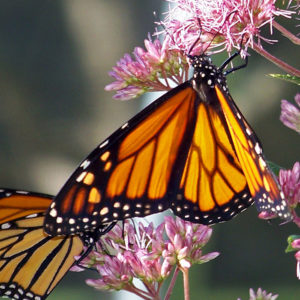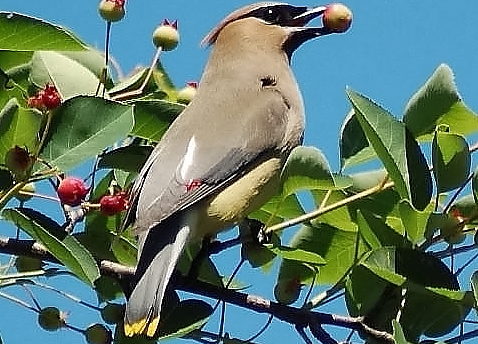
Comments about Dr. Oberhauser’s talk – written by Debbie Groat
Dr. Karen Oberhauser’s program, “Monarchs: Dwindling Numbers for an Iconic Insect,” presented fascinating details of the annual migration of monarch butterflies to the mountains of Mexico. She explained that, in spite of the recent increase in the number of monarchs overwintering in Mexico, the average for the last decade has been significantly lower than the previous ten years.

Conditions in Mexico, such as logging in the area where the monarchs typically roost, have recently improved. Dr. Oberhauser and her fellow researchers have concluded that the causes for the decline are more likely due to loss of habitat and food sources in the U.S. The use of pesticides and herbicides has had a significant negative impact. Migrating monarchs need nectaring plants along their journey south in fall as well as milkweed on which to lay their eggs as they travel north in spring. She emphasized that we could do much to help the butterflies and their larvae by planting more milkweed as well as flowering plants that provide the nectar they need to convert to the energy necessary to make such an incredible journey.
Many relevant questions were asked and answered at the conclusion of the program. It’s clear that those in attendance are interested in helping to increase the monarch population. The information shared by Dr. Oberhauser will guide those actions. We hope more property owners on the monarch’s migratory route will share those efforts.



